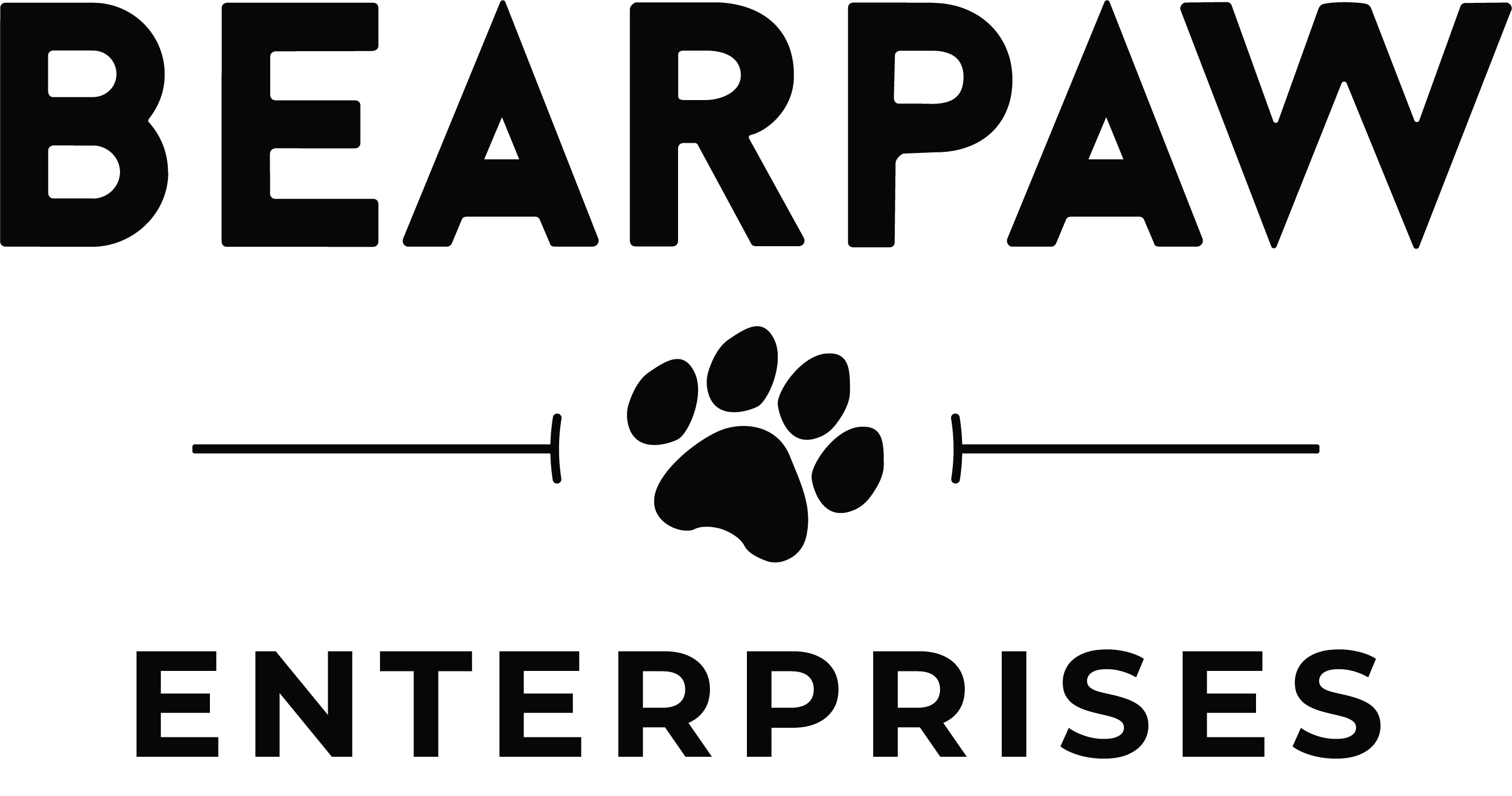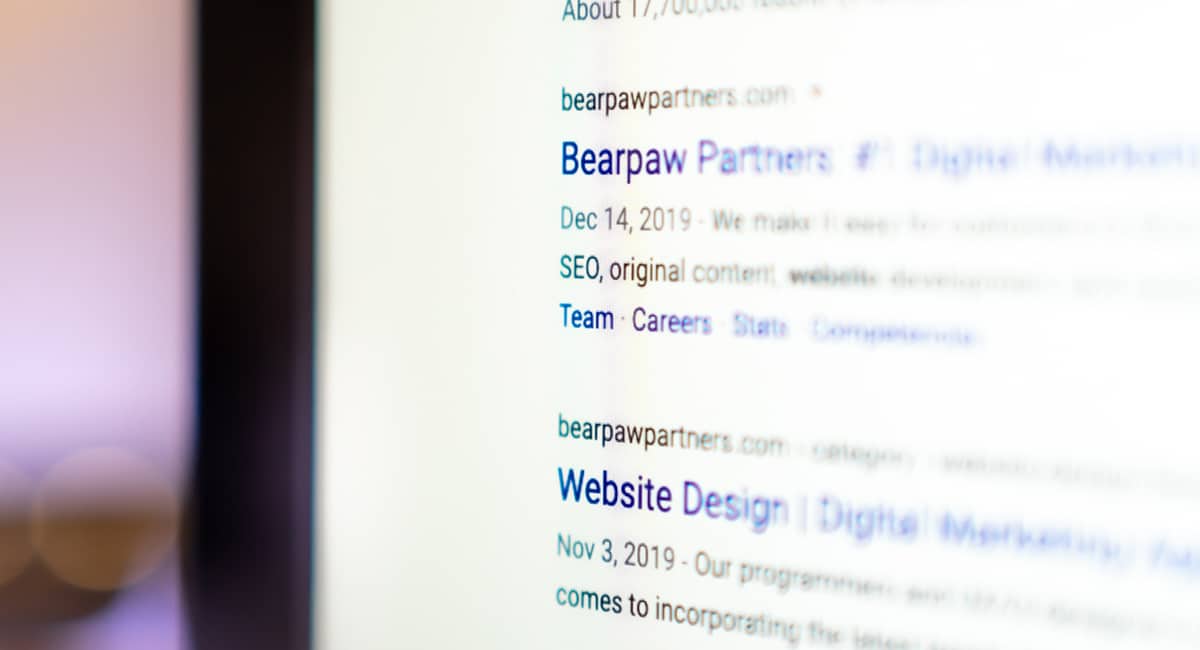When it comes to connecting brands to customers, businesses need a digital marketing team who can communicate its message through an effective, compelling and unique digital identity. The best digital marketing team can tell a brand’s story through stunning website designs, creative social media solutions, and on-brand, all-original content. Not sure where to start when searching for the best digital marketing agency who can give your brand a discoverable digital presence? Well, we did the work for you. We’ve already found the most talented and creative in-house team of website developers, SEO experts, and social media enthusiasts right here in the heart of Atlanta. Here are four reasons why Bearpaw Enterprises is the best digital marketing team in the Atlanta area.
 Bearpaw Enterprises
Bearpaw Enterprises
Good search engine optimization (SEO) avoids duplicate content. Here is a transcription of our YouTube video on duplicate content-
Hey everybody, I’m Brad from Bearpaw Enterprises, a digital marketing agency in Atlanta, Georgia. Today I’m going to be talking about duplicate content and how it affects your SEO. Duplicate content is when there are multiple URLs with almost the exact same content, if not the exact same. Duplicate content is bad for two reasons. The first reason is when you have two URLs with similar content, you no longer get to choose which page will show in SERP results. Instead, the search engines pick the page for you based on criteria such as the page that was crawled first, internal links, and external links. The second reason duplicate content is bad is that search engines will often penalize your site and move your page dramatically lower in SERP results. Now that you know why duplicate content is bad, let’s go through what exactly search engines consider duplicate content.
The internet is brimming with information. Search engines can find answers to a search query in seconds. In short, information has never been more accessible than it is now. However, with the millions of websites that exist, the internet can become congested with data, and it can be difficult for your brand to remain visible to your targeted audience on search engine result pages (SERPs). Websites need to use well-executed schema markup to increase their search engine readability. Here are five reasons your brand’s website needs schema markup.
In a digital-first world, there has never been more information readily available with a simple search. Likewise, it has never been more important for businesses to remain discoverable on search engines. In order for a brand’s website page to rank on search engine result pages (SERPs), website developers and programmers need to translate the content on their website pages in a way that search engines can read and understand, so that they can rank for relevant searches. Your brand needs a digital marketing agency who can implement schema, or structured data, to markup your website pages to optimize them for the highest search engine visibility.
There’s no denying that voice search is going to be an SEO game changer in 2018 and the years to come. Currently, 40% of adults use voice search once a day, and it’s expected that 50% of all searches will be voice searches by 2020. At Google’s 2017 I/O keynote, four out of their 10 big announcements were related to Google Home and Google Assistant. So what does it all mean? If your SEO strategy doesn’t involve voice search, then you need to make changes now. In this post, we will cover the rise of voice search, and what you can do to prepare for voice search in 2018.
You may not have heard the news back in September 2017. Amazon’s 1-click buying process, which had been patented since 1999, expired. This opens the door for companies to utilize this revolutionary process without paying Amazon any licensing fees. Amazon’s 1-click patent allowed customers to purchase goods online without having to enter billing, payment or shipping information. So, what does this mean for the consumer and businesses?
In a study conducted by BIA/Kelsey, it is estimated that location-targeted mobile ad spend will increase from $12.4 billion to $32.4 billion by 2021. While the technology for location-based search has been around for several years, it wasn’t until recently that the required infrastructure was put into place. Now businesses are beginning to utilize the value and potential of real-time location-based marketing. As with most new marketing techniques, there is some confusion between geo-fencing and geo-targeting. In this post, we will explain the differences between geo-fencing and geo-targeting and tell you how beacons can enhance a campaign.
Hyper Text Transfer Protocol Secure
Hyper Text Transfer Protocol Secure, known commonly as HTTPS, is the secure version of HTTP. In order to be classified as secure, a website must procure an SSL certificate which garners the HTTPS designation. This certificate ensures a secure connection, particularly for those sites that transfer sensitive information, such as credit card info or passwords. Thanks in large part to the growing popularity of HTTPS as well as a new iteration of Chrome (56) that will more clearly differentiate between HTTP and HTTPS, a looming question on a lot of people’s minds is, “Does HTTPS affect search engine optimization?”
A meta description is a 150-160 character snippet that summarizes the contents of a certain webpage. Meta descriptions are coded in HTML onto the page itself, but they only display on search engine result pages (SERP). For example, when you type into Google, “How to find the right career,” this is one of the top results that pops up:

The short paragraph below the rating is what’s considered the meta description. This is a great example of a succinct meta description in that it hits its keyword mark, doesn’t trail off past the recommended 156 characters, and it tells end users exactly what to expect.
Semantic search is a search method utilized by Google that analyzes user intent through context and content to generate and order search results. When a term or phrase is searched on the web, Google provides (and the user expects) a result that is relevant to the search phrase. The context of the searched words combined with the content and context of a website helps the search engine decide the result that best satisfies the query.










